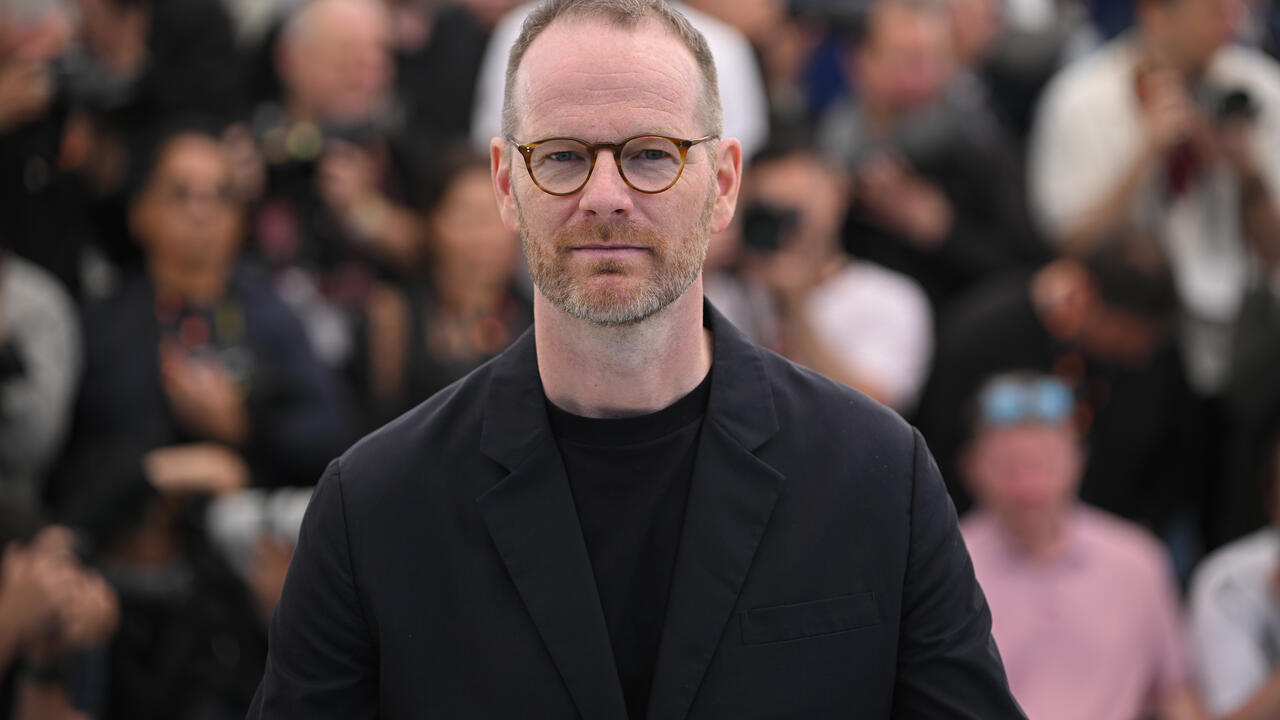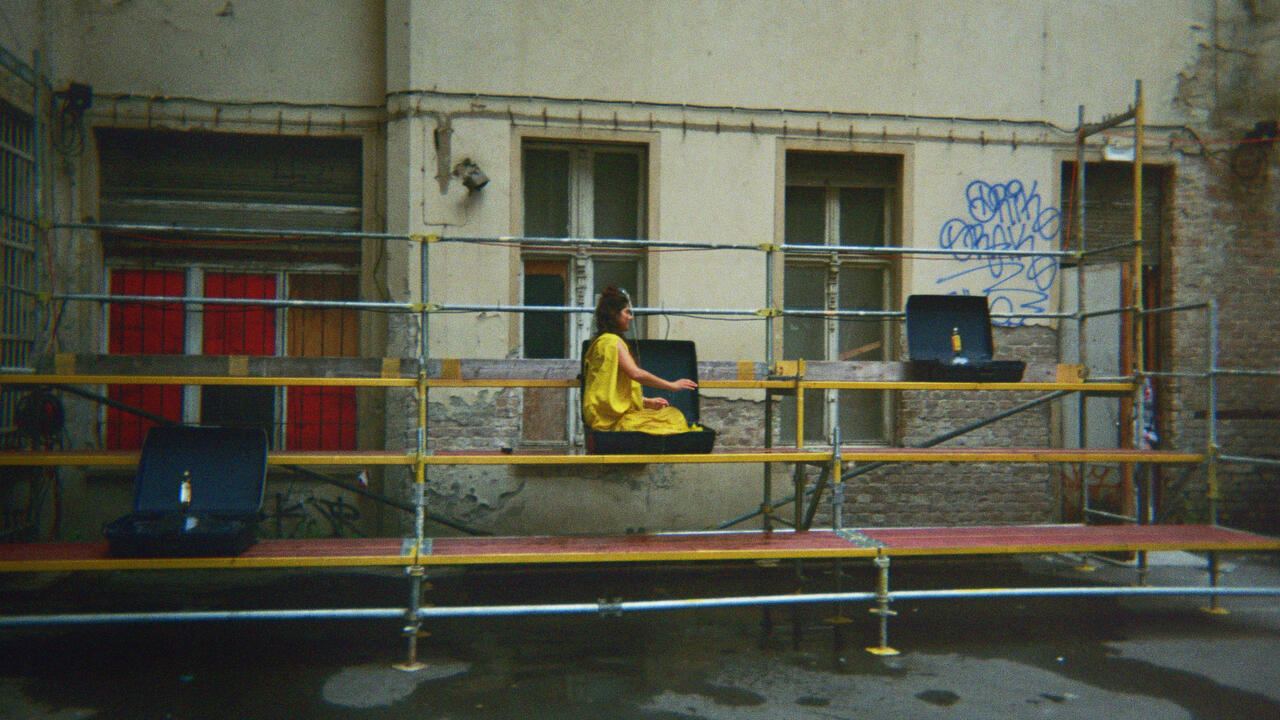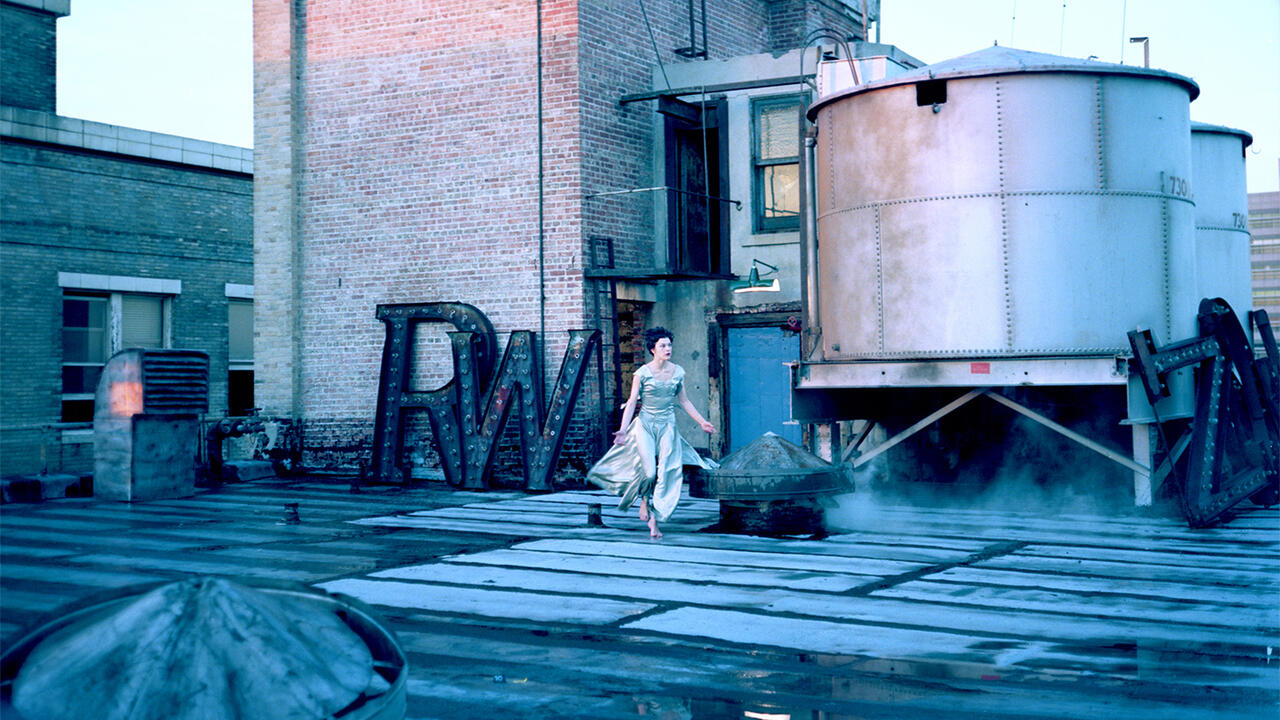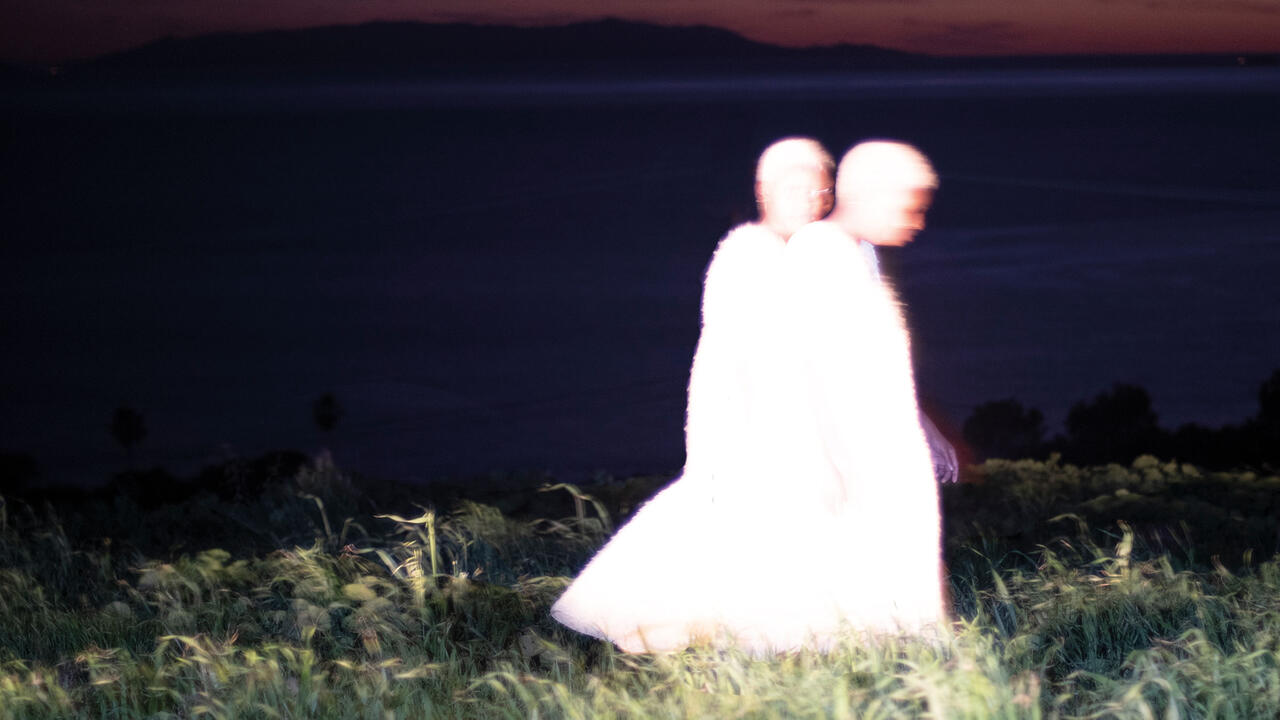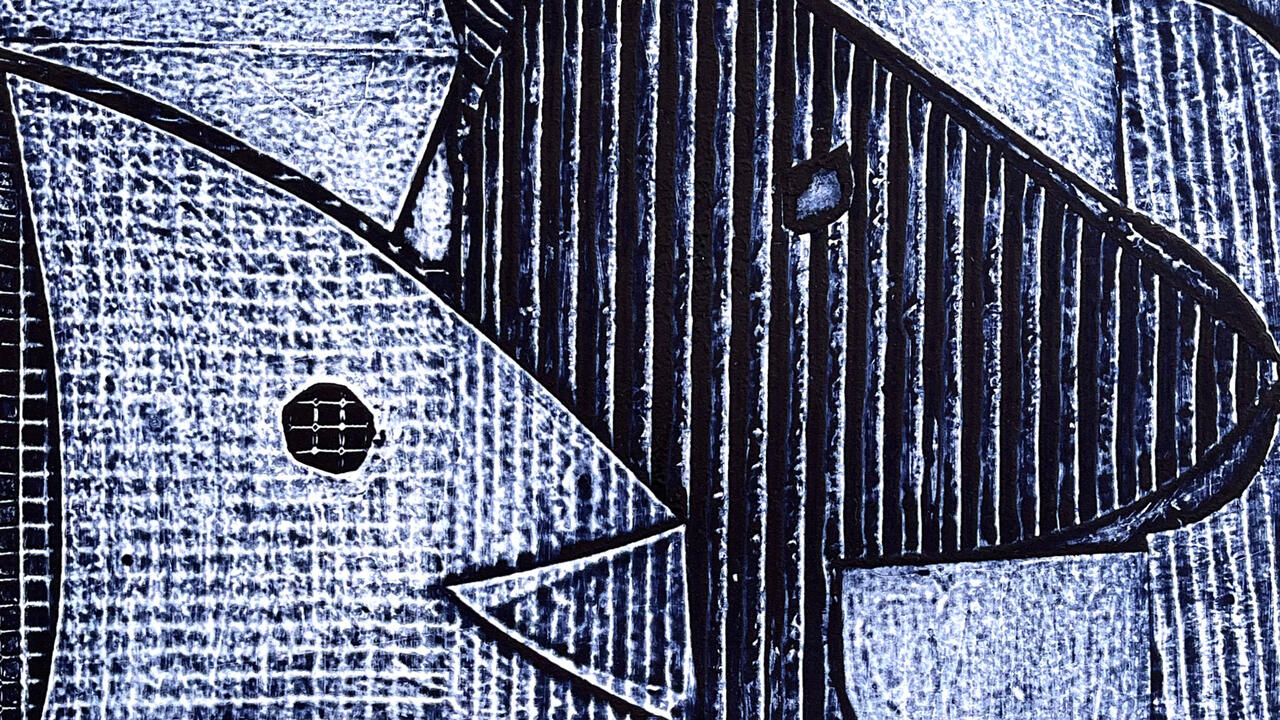Exploring ‘Imperfect Cinema’ in a Lithuanian Idyll
At an 18th-century neoclassical manor house, this year’s Cinema Camp was inspired by the writings of the late Cuban filmmaker Julio García Espinosa
At an 18th-century neoclassical manor house, this year’s Cinema Camp was inspired by the writings of the late Cuban filmmaker Julio García Espinosa

An 18th-century neoclassical manor house located on an island in the middle of a Lithuanian lake may seem an unlikely context in which to engage with Cuban revolutionary cinema, indigenous media and the aesthetics of amateurism and anti-professionalism. And yet, for four days in early August, the small town of Salos temporarily doubled its population of two hundred people to host the ninth edition of Cinema Camp, an annual gathering of filmmakers, artists, curators, critics, theorists and cinephiles for a series of screenings and discussions. This year, the theme was ‘Imperfect Cinema’.
Cinema Camp’s premise this year invokes the late Cuban filmmaker Julio García Espinosa, whose 1969 essay on the same subject begins: ‘Nowadays, perfect cinema – technically and artistically masterful – is almost always reactionary cinema.’ Espinosa argues for a turn away from the technical and aesthetic perfectionism of the commercial mainstream towards a more revolutionary cinema that would embrace the defective and aleatoric. For Espinosa, this was a means of democratizing the cinema, for making it a medium for all: ‘Art will not disappear into nothingness; it will disappear into everything.’ Indeed, as scholar Erika Balsom reminded us in the Camp’s final session, it was Hito Steyerl whose influential 2009 essay aligned Espinosa’s ideas with the contemporary object of the low-resolution, hyper-circulated, digital ‘poor image’. Espinosa’s notion of ‘imperfect cinema’ thus takes on a renewed urgency in 2018 in light of the ever-expandingavailability of media technologies to non-professionals.

What emerged from the very start of the weekend of Cinema Camp were roughly two preconceptions of cinematic imperfection. First, a panel of young Lithuanian directors and artists – including Laura Garbštienė, Emilija Škarnulytė and Romas Zabarauskas – spoke variously of the ways in which imperfection arises in their work as a (welcome) index of budgetary or technical limitations. Second, film scholar and documentarian Michael Chanan – in his introduction to a screening of Espinosa’s searing 1970 Vietnam War documentary Third World, Third World War – pointed towards an imperfect cinema in the more active and positive sense, rather than as mere reaction. For Espinosa, this entailed not simply a reaction to what he called – in Chanan’s 1982 documentary New Cinema of Latin America – the first world’s ‘culture of waste’ but as an effort to establish a new ‘culture of true liberation’ in the underdeveloped world.
The embrace of imprecision arose in a number of the weekend’s events, from scholar Maria Vinogradova’s presentation of works by amateur film collectives in Soviet Russia to programmer Herb Shellenberger’s argument for the ‘mixtape’ as a curatorial form. Similarly, the Baltic Analog Lab (BAL), a collective filmmaking laboratory in Riga, Latvia, mounted a defense of the technical imperfections of analogue media with a screening of works originating on Super 8 and 16mm, showcasing an array of styles from across Estonia, Latvia and Lithuania: from montage-heavy psychogeographies of urban space to structuralist abstraction.
Presenting a set of new and old works, the American filmmaker Jem Cohen addressed both the reactive and the proactive modes of imperfect cinema in an improvisatory talk on the role that chance plays in his films. Here, the Moscow section of his recent film Counting (2015) and a portrait of Patti Smith (Long for the City [2008]) played alongside Lost Book Found, his exquisitely melancholy 1996 dérive through the more curious corners of a now long-gone midtown Manhattan. These films showcased Cohen’s unique street cinematography, in which his openness to happenstance encounters and odd quotidian detail are later intensively reworked in his precise assemblage of sound and image.

Peggy Ahwesh’s eclectic body of work is also devoted to such chance encounter and a keen interest in media formats and imaging technologies. Her presentation was devoted to the incomplete and the partial, grouping Maya Deren’s unfinished occult-surrealist film The Witch’s Cradle (1943) alongside several of Ahwesh’s own works: 2007’s Beirut Outtakes, which collages film scraps salvaged from a defunct Beiruti cinema, divining strange patterns across genres from mummy movies and westerns to advertisements for washing machines, as well as her Ballardian 2003 crawl through the casinos and hotel rooms of Atlantic City The Star Eaters. In an echo of Deren’s film, Ahwesh also screened outtakes from the latter film and wondered aloud whether these unassimilated fragments might be better than the finished product.
Paying tribute to one of the luminaries of both the American and the Lithuanian cinemas, Ahwesh also offered some remarks on the late Adolfas Mekas, filmmaker and Ahwesh’s former colleague in what he called ‘The People’s Film Department’ at Bard College in Upstate New York. Founder, with his brother Jonas, of the magazine Film Culture – the nexus of criticism for the emerging avant-garde of the 1950s and ’60s – Adolfas Mekas was a strident, Dionysian figure whose headlong devotion to cinema was perhaps best embodied in his mock-worship of St. Tula, personally anointed by Mekas himself as the patron saint of cinema. (‘St. Tula loves your film. Even if no one else does.’) And this devotion is abundantly evident in Adolfas Mekas’s indefatigably zany 1963 film Hallelujah the Hills, which mixes New American Cinema rawness with Hal Roach horseplay and which was screened at Cinema Camp.
One project of an imperfect cinema that emerged over the course of Cinema Camp was the investigation of the obscure and marginalized corners of film history, for which the works of Angela Ricci Lucchi and Yervant Gianikian suggest one methodology. In her presentation on their work, scholar Miriam De Rosa discussed the artists’ deployment of a homemade ‘analytical camera’ to closely examine the details and textures of discarded, damaged, and forgotten film fragments in multiple formats and from multiple sources – recovering past traumas of the colonialist and fascist eras of early 20th century Italy and Armenia from the imperfections of its filmic documents. In a similar if more salutary curatorial vein, critic and programmer Ed Halter resuscitated a suite of works by the little-known African-American filmmaker Edward Owens, whose short, unusual career in the New York avant-garde of the mid-1960s produced only a handful of lyrical, Markopoulos-inflected portraits of high-key-lit bodies in shadow, each one better than the last.

Owens’s films suggest a positive inflection of the imperfect, in which image-sound misalignments and cross-rhythms in editing patterns and light-dark oscillations produce unlikely effects. Something of this was evident in the lone installation on view at the camp: Lithuanian artist Andrėja Šaltytė’s multi-channel The 7th Declension (2018), which explores the ways in which linguistic communication is embedded in the complex social and political alignments and misalignments of the region. In more traditional cinematic form, Berlin-based Azin Feizabadi’s work-in-progress fiction feature Uchronia – from which the artist presented in a series of excerpts – deployed fragmentary montage and a kaleidoscopic narrative structure to express the misalignments of body and identity in a modern quasi-sci-fi retelling of the old Persian tale of Layla and Majnun.
But perhaps the closest to Espinosa’s conception of an imperfect cinema came through the screening of two works by Adam and Zack Khalil, Ojibway filmmakers for Michigan’s Upper Peninsula. Through their screening of their extravagantly titled feature INAATE/SE/ [it shines a certain way. to a certain place./it flies. falls./] (2016) and a short, The Violence of a Civilization Without Secrets (2017), the Khalil brothers foregrounded the imperfect not simply as rejection of the popular mainstream – and, indeed, of a capitalist mode of film production – but actively seeks a space and an aesthetic outside of settler colonialism through a complex and heterogenous intersection of styles: from counter-ethnographic parody to CG psychedelia. Echoing words flashed onscreen repeatedly in Espinosa’s 1969 film: ‘TO DENOUNCE IS NOT ENOUGH.’ The imperfect must be more than a rejection of the imperialist cinema; it must be a weapon to fight it and to forge something new.
Main image: Cinema Camp 2018. Courtesy: Cinema Camp, Lithuania









